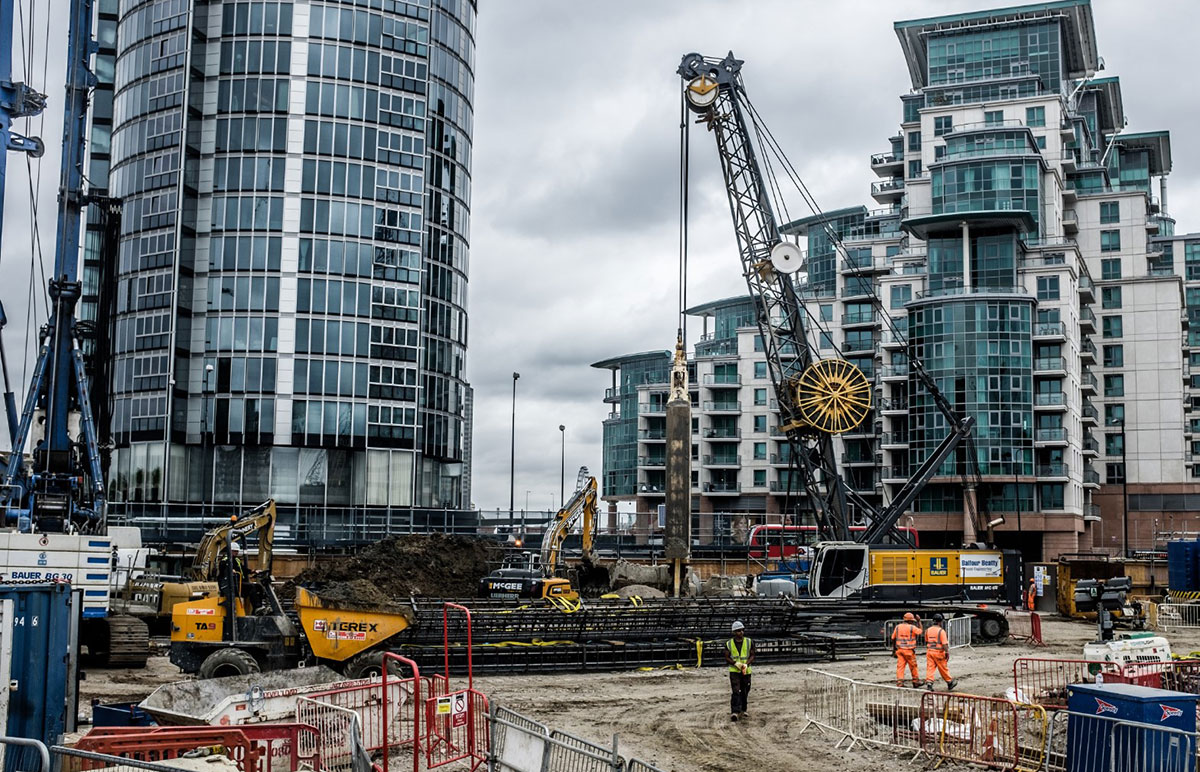Some Known Incorrect Statements About Geotheta
Some Known Incorrect Statements About Geotheta
Blog Article
The Greatest Guide To Geotheta
Table of ContentsIndicators on Geotheta You Should KnowThe Geotheta IdeasIndicators on Geotheta You Should KnowExamine This Report on GeothetaWhat Does Geotheta Mean?

They conduct website examinations, gather samples, do laboratory examinations, and assess data to examine the viability of the ground for construction projects - Tailings Engineer. Based upon their searchings for, geotechnical designers give referrals for foundation style, incline stability, preserving frameworks, and reduction of geotechnical hazards. They collaborate with various other professionals, such as architects, architectural designers, and construction groups, to make sure that geotechnical factors to consider are incorporated right into the total job style and application
By analyzing the actions and residential or commercial properties of dirt and rock, they can identify potential geotechnical hazards such as landslides, soil settlement, or slope instability. Their expertise assists avoid failures or crashes that might threaten lives and home. Right here are some detailed duties and obligations of a geotechnical engineer: Site Investigation: Geotechnical engineers conduct site investigations to gather information on subsurface problems.
They translate the information to comprehend the homes and actions of the dirt and rock, including their toughness, leaks in the structure, compaction characteristics, and groundwater conditions. Geotechnical Evaluation and Design: Geotechnical designers assess the information accumulated throughout site examinations to analyze the stability and suitability of the site for construction projects. They perform geotechnical estimations and modeling to review aspects such as bearing capacity, negotiation, slope stability, side planet stress, and groundwater circulation.
Geotheta - An Overview
Foundation Design: Geotechnical designers play an essential function in creating foundations that can securely support the desired structure. They assess the soil problems and tons demands to figure out the ideal foundation kind, such as shallow structures (e.g., grounds), deep foundations (e.g (https://www.openstreetmap.org/user/geotheta)., heaps), or specialized strategies like dirt renovation. They think about elements such as negotiation restrictions, birthing ability, and soil-structure communication to create optimal structure designs
They review building plans, monitor site tasks, and perform field inspections to validate that the design referrals are adhered to. If unforeseen geotechnical concerns emerge, they examine the situation and provide referrals for remediation or modifications to the layout. Threat Analysis and Mitigation: Geotechnical engineers analyze geotechnical hazards and threats connected with the task website, such as landslides, liquefaction, or dirt erosion.

Cooperation and Interaction: Geotechnical designers work closely with various other experts associated with a task, such as designers, architectural engineers, and construction teams. Reliable communication and collaboration are necessary to integrate geotechnical factors to consider right into the overall task style and building process. Geotechnical designers offer technological knowledge, response questions, and guarantee that geotechnical needs are met.
The Best Guide To Geotheta
Here are some kinds of geotechnical designers: Structure Engineer: Structure designers focus on making and analyzing foundations for structures. They analyze the dirt problems, lots demands, and site features to establish one of the most ideal structure kind and layout, such as superficial structures, deep structures, or specialized methods like stack foundations.
They evaluate the factors affecting incline stability, such as soil properties, groundwater conditions, and incline geometry, and create methods to avoid incline failures and mitigate risks. Quake Designer: Quake designers focus on assessing and developing structures to endure seismic forces. They analyze the seismic threat of a website, assess soil liquefaction potential, and create seismic design requirements to guarantee the safety and resilience of frameworks throughout earthquakes.
They carry out field testing, collect samples, and analyze the collected information to identify the dirt homes, geologic formations, and groundwater conditions at a website. Geotechnical Instrumentation Engineer: Geotechnical instrumentation designers concentrate on tracking and measuring the habits of dirt, rock, and structures. They install and preserve instrumentation systems that keep track of elements such as soil negotiation, groundwater levels, incline activities, and structural variations to examine performance and supply early cautions of prospective issues.
Some Known Factual Statements About Geotheta
They conduct examinations such as triaxial tests, debt consolidation tests, direct shear tests, and leaks in the structure tests to collect data for geotechnical evaluation and design. Geosynthetics Designer: Geosynthetics engineers concentrate on the design and application of geosynthetic materials, such as geotextiles, geogrids, and geomembranes. They make use of these products to enhance dirt security, reinforce slopes, give water drainage options, and control erosion.
They often tend to be investigative people, which means they're intellectual, reflective, and curious. They are interested, methodical, reasonable, logical, and logical. Several of them are also social, implying they're kind, generous, participating, client, caring, useful, understanding, sensible, and pleasant. Does this audio like you? Take our totally free occupation examination to figure out if geotechnical designer is just one of your leading career matches.
In the office atmosphere, geotechnical engineers use specialized software program tools to carry out estimations, develop styles, and examine data. They prepare reports, review project requirements, connect with clients and staff member, and coordinate project tasks. The workplace setting gives a helpful setting for research study, evaluation, and cooperation with various other specialists entailed in the project.
Geotheta Things To Know Before You Buy
They regularly check out project websites to perform site examinations, analyze geotechnical conditions, and collect data for analysis. These sees include taking a trip to different areas, sometimes in remote or tough terrains. Geotechnical engineers might perform soil sampling, conduct tests, and display construction tasks to guarantee that the geotechnical facets of the project are being applied correctly.
Geotechnical designers additionally function in specialized geotechnical laboratories. Geotechnical laboratory engineers function thoroughly in these atmospheres, managing screening equipment, operating instruments, and tape-recording data.
Report this page